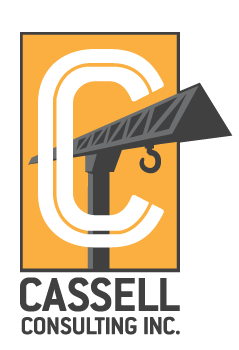
SELECTING THE RIGHT SOFTWARE TECHNOLOGY FOR YOUR CONSTRUCTION BUSINESS
Choosing construction technology software is critical to the success of your construction business. Simply put, it’s all about doing more with less. I work with many contractors – both small, locally-owned construction businesses and larger construction companies – who are uncertain about when, why or how they should go about selecting construction software. Whether you’re taking the leap from QuickBooks or Excel to more sophisticated construction software, or you’re thinking about upgrading your software, this white paper is designed to guide contractors and other construction professionals through the process of considering the best technology solutions for their business followed by information on how to go about the selection process.
By David V. Jean
CPA, CCIFP, Principal, Albin, Randall & Bennett.
This white paper is reprinted by permission of Viewpoint Software.
WHY SHOULD YOU INVEST IN CONSTRUCTION-SPECIFIC TECHNOLOGY?
The greatest challenges I see construction businesses facing are using outdated software, general or basic accounting software or using construction software that may not be the best solution for their business. One accounting package that works seamlessly for one company may not meet the demands of other companies. Overall, construction companies are typically searching for technology solutions that enable lean business practices and provide real time and accurate data to make better business decisions. With the economy beginning to recover, contractors who put technology investments or upgrades on hold are now starting to consider whether or not it’s the right time to implement construction accounting, estimating and project management software to operate more effectively and efficiently in today’s construction market.
The first question I advise my clients to ask themselves is: are you spending more time managing your information systems than you are building? Many construction companies have limited internal resources for managing the accounting, job costing, estimating, financial reporting, and project management functions. I’ve seen construction companies struggle to stay organized by using antiquated or overly basic software such as Excel or QuickBooks and paper binders along with a customized program for job costing, and black boards for scheduling and service calls. The right software integrates all of those functions into one tool. Other construction companies were forced to downsize during the recent recession, leaving fewer staff to manage their information systems. By having a robust accounting and project management system in place, staff resources can be significantly reduced. Those team members can be free to focus on more proactive aspects of managing your business. Fill that person’s day with projects that are of more value than just data entry.
Growing companies are the most likely to benefit from construction specific tools. Many companies start off not investing much in technology but soon realize that they need to go to the next level to increase their efficiencies and improve their bottom line, as well as improve their internal and financial controls. As the company grows, it’s easy for the office to take a back seat and soon the process of managing the business is out of control. The right software solution can bring accounting, job costing, estimating, financial reporting, project management and flexible and powerful reporting together into one system.
HOW CAN CONSTRUCTION SPECIFIC SOFTWARE IMPROVE OPERATIONAL EFFICIENCIES?
After working with many different clients in the construction industry who utilize varying construction software systems, I continually observe opportunities to improve operational efficiencies by centralizing information and implementing construction-specific technologies. Most general purpose software relies upon third party applications to provide the customization that contractors and other construction businesses need to operate their businesses.
By choosing integrated construction software, some of the improvements to operational efficiencies include:
- Efficiency – The biggest time waster in any office is locating and chasing paperwork. An efficient system with document imaging technology allows you to electronically store all of the invoices, construction documents and reports in a central location. Further efficiency can be gained by utilizing electronic document routing and approval processes that tie together various departments and operations. Complete the same amount of work in less time, using fewer staff. With all of your data in one program, there is no need for duplicating data entry. All applications are integrated – a huge time saver.
- Integration & Flexibility – Integrate the system with Microsoft Office for easy internal organization and communication. Project e-mails and other correspondence can be filed electronically with search capabilities.
- Mobility – Allow your team to access real time data from outside the office via their laptop, iPad or tablet device. Team members can better manage field resources by accessing project management information at the click of a button.
- Streamlined Process – Enter all of the information once to save time and improve accuracy. An integrated system will help maintain tight financial controls.
- Access to Data – Drill down into detailed information without printing multiple reports with high-level executive dashboard reporting and records. The more reliable and accessible the data is, the better your business is able to use that data to make strategic decisions on a timely basis. Construction software can also help you increase your bottom line by improving financial reporting. With all of the necessary information housed in one system, financial reporting is automated, accurate and reliable.
- Increased Profitability – Improve your bottom line by minimizing staff and maintaining accuracy in your data, estimating and invoicing. By using software that integrates all aspects of your business, there’s no need to purchase expensive application upgrades to complement your existing system. You can also improve cash flow if job information is better organized. This makes completion-to payment cycles shorter. Improve profitability by monitoring estimated labor hours against actual hours, capturing change requests early in the process and identifying when you’re paying for overbilled materials. Monitoring job performance in real time will allow construction businesses to identify problems and take corrective actions.
- Standardize Processes – Selecting software that standardizes the project management functions is also a significant time saver (and consequently, improves profitability). A standardized method of managing jobs streamlines the process of project execution. This makes it easier for your team to learn the new software and quickly navigate from job to job to save time. Standardizing project management documents (RFIs, change requests, etc.) provides for consistency and professionalism in how your business is portrayed to clients and prospects.
WHAT ARE THE LATEST TRENDS WITHIN CONSTRUCTION SPECIFIC TECHNOLOGY?
One of the most useful technology upgrades is cloud computing and remote connectivity. This is an extremely important consideration when selecting construction software. Only a few years ago, cloud computing and web-based technology was in its infancy and largely unknown. Today, the ability to stay connected with your team, your suppliers and your clients from any location is a huge asset that enables you to improve productivity and communication. It also eliminates the need to invest in expensive hardware upgrades because web-based applications can run from nearly any operating system. As you research and analyze options within construction software, consider how mobility will improve your operations. Many technology providers are heavily investing in ways to make their software available on iPads, tablets and mobile phones.
Consider how client relations will be enhanced by using a system that allows clients to create or check work orders online, access construction documents and promote collaboration among the project stakeholders. At the same time, project managers and staff can enter time and billing data, equipment usage and service call information in real time. Again – it’s all about doing more with less: increasing your profits by reducing the amount of time your team spends chasing paperwork.
THE PROCESS OF SELECTING THE RIGHT CONSTRUCTION SOFTWARE FOR YOUR BUSINESS
One of the best ways to determine whether your business is ready to pursue construction software is to query the internal users. Spend time talking with your accounting team, project managers and IT department. Talk to the employees who use the technology on a daily basis. This will give you a very clear sense of where your existing computer systems are helping or hurting your business.
I guide my construction industry clients through a software selection process that follows these basic steps (which are often customized to meet the business’ unique situation):
- Internal assessment – Talk to your team. Develop a report that summarizes the needs that exist within your business.
- Industry assessment – Talk to industry experts. Inform yourself about the trends that exist within your competitive space. Work to understand how construction-specific technology or new tools will help you compete.
- Research – Develop a list of products that you would like to learn more about. Develop criteria that you would like your potential new system to meet. This will help you narrow down the opportunities as you work through the research and selection process.
- Meet vendors – Spend some time meeting and discussing options from a variety of vendors. Participate in a few product demos to help differentiate between product features. Develop a spreadsheet or a system for organizing the features of the various products.
- Test drive – Take advantage of opportunities to try the products. Think about software features to look for during a product demonstration.
- Analyze – Determine if the software can meet the critical needs of your company. Take the time to follow-up with references.
- Purchase/Contracting – Review software, training and implementation costs as well as hardware and ongoing licensing costs.
- Implementation – Organize project team, develop implementation plan to include milestones, time budgets and team responsibilities.
- Roll out – Consider time and costs of training your team. Plan for “flipping the switch” from your old system and how this will impact your internal processes and your ability to connect/ communicate with clients.
CONCLUSION/NEXT STEPS
Selecting and investing in construction-specific software is a critical decision for construction businesses. By educating your team about the current trends within construction technology and how a fully integrated system can improve profitability, you’ll be armed with the knowledge and guidance you need to begin the selection process. Consult experts within your industry for guidance on how to select and implement construction accounting and project management technology. Take the time to network with a variety of providers – your decision should lead to increased operational efficiencies and ultimately enhanced profits for your business.
David V. Jean, CPA, and CCIFP is a Principal with ARB in Portland, Maine. He specializes primarily in financial accounting and consulting for construction, manufacturing and real estate development companies. He provides tax, accounting and management advisory services to contractors, manufacturers and developers throughout New England. David also serves as the Managing Partner of New England Funds Control, LLC (NEFC), and a wholly-owned subsidiary of ARB. NEFC specializes in providing funds control services for sureties, contractors and banks. Since joining ARB in 1992, David has been actively involved in the construction industry as a member of Associated General Contractors of Maine, Associated Builders and Contractors of Maine and New Hampshire, Construction Financial Management Association, Manufacturers’ Association of Maine, as well as the American Institute of Certified Public Accountants. He was awarded the Certified Construction Industry Financial Professional (CCIFP) designation in August, 2005. He may be reached at [email protected]. Learn more about Albin, Randall & Bennett at www.arbcpa.com.




